Mobile communications in Europe
I once wrote about my choice of roaming options of our mobile operators. Then I stopped at "Zero without Borders" from MTS for incoming and at the tariff "Around the World" from Megaphone for outgoing and Internet. But three years have passed, a lot has changed. Decided to document the current state of affairs.
For a start, why only Europe. Everything is simple - I usually go on vacation to Europe. Not as often as some people drive, but much more often than I myself go to other parts of the world.
Why did such a question arise at all, why not buy a local sim card in the host country? Firstly, the tourist is not always possible. Secondly, it is not always profitable for a tourist, especially if he came for a couple of days. But if I'm in the country for a week or more, then I try to purchase a local sim card.
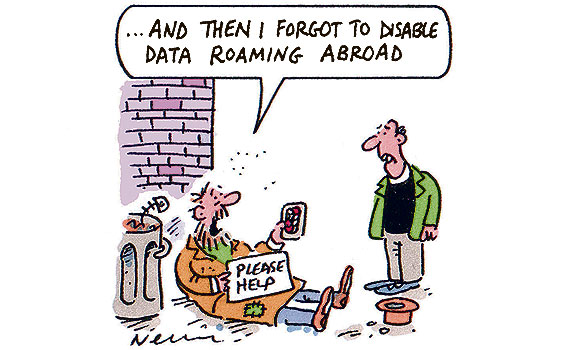
What do I need to travel from communication - in descending order:
1) Incoming calls to the main number and incoming SMS (especially all banking). Moreover, there is no particular desire to ring everyone around and tell me that I am abroad.
So the incoming need free or cheap. When saving numbers.
2) the Internet. Subject to the previously loaded maps, my traffic requirements for the phone are not particularly large, for instant messengers, reading news announcements, answers to a couple of three forums and rare searches for some information (timetables are all there) enough 40-50 megabytes per day (if you save but without fanaticism).
But I will take it with a margin and let it be 100 megabytes per day (I will not distribute the Internet to the laptop, as far as possible, there is a higher demand).
3) Outgoing calls. I prefer to call via the Internet, but sometimes I have to call without the Internet, and therefore I want acceptable outgoing prices (with my volumes of conversations, I consider acceptable up to 10 rubles per minute ).
I travel with two phones - the main smartphone for the Internet and just a dialer for incoming calls and SMS, so that it is not attached to one SIM card, there is flexibility in choosing.
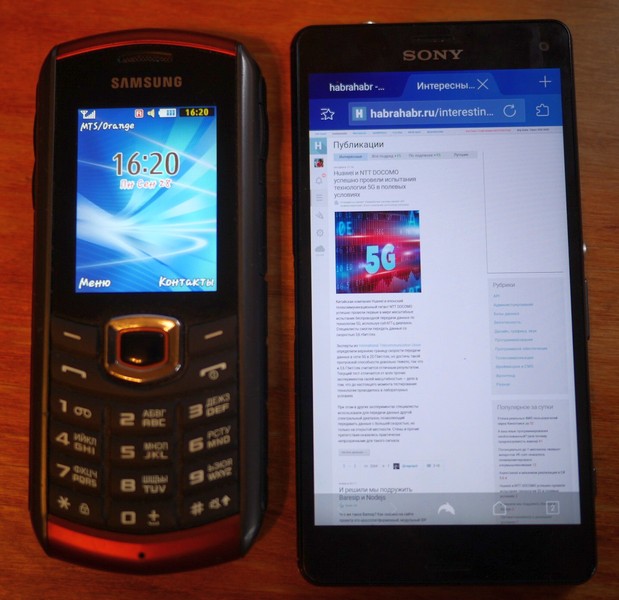
')
Okay, let's get started.
Yes, more - I live in the Yaroslavl region, because the links to the tariffs I will give my own. But in other regions, the names of the services do not change, only the rates change. Although it happens, some services or tariffs are not available.

My main operator. The tariff “Smart”, 300 rubles for 300 minutes of calls and 3 gigabytes of traffic, is valid throughout Russia. Therefore, when traveling around Russia, roaming issues no longer arise. Unless with coverage everything is not as good as we would like (but this is the case with all operators).
We look, that is for my needs:
1) “Zero without Borders” - incoming calls from 1 to 10 minutes are free of charge, the limit is 200 free minutes per month. Price - 95 rubles per day.
But I only connect this service for bonuses, so it costs me for free. And, since the duration of my trips usually does not exceed two weeks, one-time connection is enough (10 days of validity, I endure a couple of days without incoming).
2) the Internet. BIT / MaksIBIT / SuperBIT abroad . It gives 30/70/200 megabytes per day for 300/600/1500 rubles. Expensive.
3) Outgoing. There is a service Free Travel , gives 60 minutes of incoming / outgoing per day for 250 rubles. The price per minute is 4.16 - but only if you spend all 60 minutes. So the option is niche.
You can call by dialing through the code * 137 * number , then the cost per minute is 19.90. Too expensive.
Total : with MTS, I get only free incoming bonuses. But I do not speak for long and I also travel for a short time, so this option suits me.
For those who talk a lot, you can use such a move - take a few SIM cards with you and after 200 minutes are exhausted, connect the service to the next one. Just do not forget that more than a month so have fun will not work.
But the Internet and outgoing expensive, only in case of serious need, you can use.

Here I have the Moscow tariff "Around the World . "
Three years ago, it was quite pleasant (for roaming, by itself :)) - 6 rubles per minute of any conversation, 7 rubles per megabyte of traffic. For short trips was the most.
Now it has become much more expensive.
1) Incoming on the tariff - 13 rubles per minute.
At other rates, you can connect the option "Around the World" - 15 rubles connection, 9 rubles per day. Then all incoming will be worth 13 rubles.
Or you can connect the option "All World" - 30 minutes of free incoming calls for 39 rubles per day.
2) Internet - at my rate - 19 rubles per megabyte, in a limited number of countries - “Austria, Armenia, United Kingdom, Greece, Egypt, Israel, Ireland, Spain, Italy, Latvia, Lithuania, Liechtenstein, UAE, Portugal, Romania, Turkey , Finland, Croatia, Czech Republic, Switzerland, Estonia, South Africa ".
At other rates, you can activate the Vacation Online option - a connection of 30 rubles. Then within a month the traffic will cost 19 rubles per megabyte, but in a few more countries “Austria, Armenia, Belarus , Great Britain, Germany , Greece, Egypt, Israel, Ireland, Spain, Italy, Latvia, Lithuania, Liechtenstein, United Arab Emirates, Portugal , Romania, Turkey, Ukraine , Finland, France , Croatia, Czech Republic, Switzerland, Estonia, South Africa. ”
There is also the “Internet abroad” - traffic packets by the type of MTS BITs. For Europe - 10 megabytes for 129 rubles and 30 megabytes for 329. Slightly more expensive than MTS, there is a smaller package, but there are no large ones.
3) Outgoing.
On the “Around the World” tariff or with the “Around the World” option connected, the outgoing ones cost 13 rubles per minute, the service works via callback - that is, in fact, this incoming call is received. If at the tariff "Around the World" to disable callback, then the calls will cost 19 rubles for the first minute, then - 6 rubles per minute.
At other rates you can connect packages of minutes . For Europe - 25 minutes for 329 rubles, 50 minutes for 529 rubles.
Total : the tariff "Around the World" killed. Remained limited for traveling in Russia. It is better to take any tariff without a subscriber and, if necessary, connect the necessary options there. Free incoming roaming charges may be cheaper than MTS (if both there and there pay with money, not bonuses). Internet in small quantities (up to 10 megabytes) is cheaper than that of the MTS, but from 30 megabytes - is already more expensive. Outgoing - formally cheaper than the MTS, but it depends on their number and methods of use.
In general, a good option for free incoming, and the Internet and outgoing at about the same level as the MTS. In some conditions, a bit cheaper, in some - a little more.

I got a Beeline not so long ago, initially for the Internet on a trip to Azerbaijan, but it was still useful in a couple of places. The tariff now I do not even remember what, something without a subscriber. In terms of ease of tariffs Beeline compares favorably with the MTS and MegaFon, there are few options.
1) Inbox. I do not use, but the service is still connected. It is called "Planet Zero" .
Connection costs 25 rubles, the subscriber is charged only on the days of use. For 60 rubles you get 20 minutes of incoming per day. After exceeding - 10 rubles per minute.
2) the Internet. Here is the best deal from the big three. This is called - “The most profitable Internet in roaming” . 200 rubles for 40 megabytes, in excess of - 5 rubles megabytes. No need to connect, it works automatically.
3) Outgoing. Either the “Planet Zero” mentioned is 60 rubles per day and outgoing at 20 rubles per minute, or My Planet - connection is 25 rubles, and further, without any subscriber, outgoing 25 rubles per minute.
Total: I do not use incoming and outgoing here, but for the Internet the solution is very good. For the big three.
Against the background of proposals from the big three, they recently lost their advantages. But to consider it makes sense.
For convenience of calculations, the dollar rate will take 65 rubles, the euro - 75.

They offer two tariffs, "Planet-Good" and "Good Internet" .
1) Inbox. Formally, it is free (more than a hundred countries are on the list), but when the Russian number is saved, it is $ 0.15 per minute (about 10 rubles, and for the biline, another 3.5 rubles for redirection). In general, for the incoming, in my opinion, unprofitable.
2) the Internet. The prices for both tariffs are the same, but at the Good Internet tariff it is possible to receive for 1 $ 20 megabytes per day. If you run out, the package can be connected again. That is, it turns out $ 0.05 per megabyte (approximately 3.25). The only thing is to monitor the traffic in order not to fly to the megabyte payment - there is $ 0.25 per megabyte. Large packages are not particularly profitable, but 250 megabytes for $ 25 a week may be a convenient option for using instant messengers (the price of a megabyte is $ 0.1).
3) Outgoing. $ 0.15 (10 rubles) to Moscow and St. Petersburg for urban and $ 0.29 (19 rubles) for the rest of Russia and all mobile.
Total: inboxes are not interesting, outgoing - only if you need to make a lot of calls to Moscow and St. Petersburg, the Internet can be interesting, if not too lazy to monitor the consumption of packages. In the complex - I would not use.
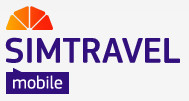
Tariffs are one-on-one like Goodline, only they are called differently.
Well, and perhaps the most profitable option for the Internet in Europe - the European SIM cards with roaming connected. You can go and buy yourself, you can order via the Internet from intermediaries. The most popular two options.
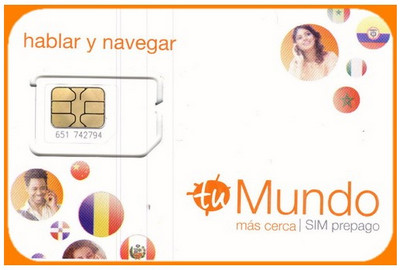
The tariff, if I am not mistaken, is called Mundo, with the Go Europe option connected.
The rates are simple: 1 euro for 100 megabytes of traffic and 1 euro for an hour of conversations in the host country. For Spain, of course, the rates are separate.
Money is withdrawn upon use of the service, the connected package is valid until the end of the day, if not exhausted. If exhausted, then renewed.
The life of the card is one year from the date of the last replenishment, replenished from a bank card in your account.
http://prepaid-data-sim-card.wikia.com/wiki/Euro1 - here you can read details and pitfalls (in English).
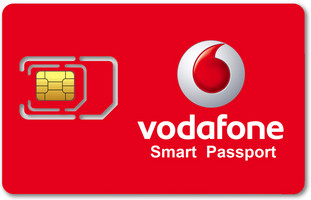
Tariff (or option) Smart Passport.
3 euro per day for 500 megabytes of traffic, 25 minutes of incoming and 25 minutes of outgoing calls. Where exactly the calls are spent - I didn’t understand it too well, but I suspect that it is also by country of residence. After 500 megabytes, the speed is limited to 32 kilobits. The subscriber is charged only if there were traffic expenses or minutes. Deposit via Paypal.
The coverage area is larger than that of Orange - besides the EU, Switzerland, Turkey, the United States, Canada and something trivial are also added.
There are some difficulties with the distribution of the Internet to other devices, people play with different APN. If the games were unsuccessful, then 6 euros is added to 3 euros. But generally there is an Internet passport option for tablets and modems, 6 euros and a gigabyte of traffic.
Discussion on the forum Vinsky
http://prepaid-data-sim-card.wikia.com/wiki/Italy - short description, browse to the EU roaming offer in the section about Vodafone.
Of course, there are other options, but they are more designed for residents and are not sold on the Internet.
I stopped at Go Europe, I found this option more profitable. I ordered from intermediaries via eurosim.me, paid 3,500 rubles, received 25 euros on my account. Access to the personal account is available, the card is registered on my passport data. Although, of course, this is not the only option. You can search on ebay, for example.
As a result: for trips to Europe, I will recommend a bundle of the main SIM card with the connected service of free incoming and European SIM cards for data transfer. For outbound as far as possible use VoIP-providers. Of course, you need either two devices, or one dvuhsimochny.
UPD : Yes, I forgot to mention the useful travel site - prepaid-data-sim-card.wikia.com Enter a country in the search and see what offers there are for operators, tariffs and what are the features in all this.
For a start, why only Europe. Everything is simple - I usually go on vacation to Europe. Not as often as some people drive, but much more often than I myself go to other parts of the world.
Why did such a question arise at all, why not buy a local sim card in the host country? Firstly, the tourist is not always possible. Secondly, it is not always profitable for a tourist, especially if he came for a couple of days. But if I'm in the country for a week or more, then I try to purchase a local sim card.

What do I need to travel from communication - in descending order:
1) Incoming calls to the main number and incoming SMS (especially all banking). Moreover, there is no particular desire to ring everyone around and tell me that I am abroad.
So the incoming need free or cheap. When saving numbers.
2) the Internet. Subject to the previously loaded maps, my traffic requirements for the phone are not particularly large, for instant messengers, reading news announcements, answers to a couple of three forums and rare searches for some information (timetables are all there) enough 40-50 megabytes per day (if you save but without fanaticism).
But I will take it with a margin and let it be 100 megabytes per day (I will not distribute the Internet to the laptop, as far as possible, there is a higher demand).
3) Outgoing calls. I prefer to call via the Internet, but sometimes I have to call without the Internet, and therefore I want acceptable outgoing prices (with my volumes of conversations, I consider acceptable up to 10 rubles per minute ).
I travel with two phones - the main smartphone for the Internet and just a dialer for incoming calls and SMS, so that it is not attached to one SIM card, there is flexibility in choosing.

')
Okay, let's get started.
Yes, more - I live in the Yaroslavl region, because the links to the tariffs I will give my own. But in other regions, the names of the services do not change, only the rates change. Although it happens, some services or tariffs are not available.
Mts

My main operator. The tariff “Smart”, 300 rubles for 300 minutes of calls and 3 gigabytes of traffic, is valid throughout Russia. Therefore, when traveling around Russia, roaming issues no longer arise. Unless with coverage everything is not as good as we would like (but this is the case with all operators).
We look, that is for my needs:
1) “Zero without Borders” - incoming calls from 1 to 10 minutes are free of charge, the limit is 200 free minutes per month. Price - 95 rubles per day.
But I only connect this service for bonuses, so it costs me for free. And, since the duration of my trips usually does not exceed two weeks, one-time connection is enough (10 days of validity, I endure a couple of days without incoming).
2) the Internet. BIT / MaksIBIT / SuperBIT abroad . It gives 30/70/200 megabytes per day for 300/600/1500 rubles. Expensive.
3) Outgoing. There is a service Free Travel , gives 60 minutes of incoming / outgoing per day for 250 rubles. The price per minute is 4.16 - but only if you spend all 60 minutes. So the option is niche.
You can call by dialing through the code * 137 * number , then the cost per minute is 19.90. Too expensive.
Total : with MTS, I get only free incoming bonuses. But I do not speak for long and I also travel for a short time, so this option suits me.
For those who talk a lot, you can use such a move - take a few SIM cards with you and after 200 minutes are exhausted, connect the service to the next one. Just do not forget that more than a month so have fun will not work.
But the Internet and outgoing expensive, only in case of serious need, you can use.
Megaphone

Here I have the Moscow tariff "Around the World . "
Three years ago, it was quite pleasant (for roaming, by itself :)) - 6 rubles per minute of any conversation, 7 rubles per megabyte of traffic. For short trips was the most.
Now it has become much more expensive.
1) Incoming on the tariff - 13 rubles per minute.
At other rates, you can connect the option "Around the World" - 15 rubles connection, 9 rubles per day. Then all incoming will be worth 13 rubles.
Or you can connect the option "All World" - 30 minutes of free incoming calls for 39 rubles per day.
2) Internet - at my rate - 19 rubles per megabyte, in a limited number of countries - “Austria, Armenia, United Kingdom, Greece, Egypt, Israel, Ireland, Spain, Italy, Latvia, Lithuania, Liechtenstein, UAE, Portugal, Romania, Turkey , Finland, Croatia, Czech Republic, Switzerland, Estonia, South Africa ".
At other rates, you can activate the Vacation Online option - a connection of 30 rubles. Then within a month the traffic will cost 19 rubles per megabyte, but in a few more countries “Austria, Armenia, Belarus , Great Britain, Germany , Greece, Egypt, Israel, Ireland, Spain, Italy, Latvia, Lithuania, Liechtenstein, United Arab Emirates, Portugal , Romania, Turkey, Ukraine , Finland, France , Croatia, Czech Republic, Switzerland, Estonia, South Africa. ”
There is also the “Internet abroad” - traffic packets by the type of MTS BITs. For Europe - 10 megabytes for 129 rubles and 30 megabytes for 329. Slightly more expensive than MTS, there is a smaller package, but there are no large ones.
3) Outgoing.
On the “Around the World” tariff or with the “Around the World” option connected, the outgoing ones cost 13 rubles per minute, the service works via callback - that is, in fact, this incoming call is received. If at the tariff "Around the World" to disable callback, then the calls will cost 19 rubles for the first minute, then - 6 rubles per minute.
At other rates you can connect packages of minutes . For Europe - 25 minutes for 329 rubles, 50 minutes for 529 rubles.
Total : the tariff "Around the World" killed. Remained limited for traveling in Russia. It is better to take any tariff without a subscriber and, if necessary, connect the necessary options there. Free incoming roaming charges may be cheaper than MTS (if both there and there pay with money, not bonuses). Internet in small quantities (up to 10 megabytes) is cheaper than that of the MTS, but from 30 megabytes - is already more expensive. Outgoing - formally cheaper than the MTS, but it depends on their number and methods of use.
In general, a good option for free incoming, and the Internet and outgoing at about the same level as the MTS. In some conditions, a bit cheaper, in some - a little more.
Beeline

I got a Beeline not so long ago, initially for the Internet on a trip to Azerbaijan, but it was still useful in a couple of places. The tariff now I do not even remember what, something without a subscriber. In terms of ease of tariffs Beeline compares favorably with the MTS and MegaFon, there are few options.
1) Inbox. I do not use, but the service is still connected. It is called "Planet Zero" .
Connection costs 25 rubles, the subscriber is charged only on the days of use. For 60 rubles you get 20 minutes of incoming per day. After exceeding - 10 rubles per minute.
2) the Internet. Here is the best deal from the big three. This is called - “The most profitable Internet in roaming” . 200 rubles for 40 megabytes, in excess of - 5 rubles megabytes. No need to connect, it works automatically.
3) Outgoing. Either the “Planet Zero” mentioned is 60 rubles per day and outgoing at 20 rubles per minute, or My Planet - connection is 25 rubles, and further, without any subscriber, outgoing 25 rubles per minute.
Total: I do not use incoming and outgoing here, but for the Internet the solution is very good. For the big three.
Tourist sim cards
Against the background of proposals from the big three, they recently lost their advantages. But to consider it makes sense.
For convenience of calculations, the dollar rate will take 65 rubles, the euro - 75.
Goodline

They offer two tariffs, "Planet-Good" and "Good Internet" .
1) Inbox. Formally, it is free (more than a hundred countries are on the list), but when the Russian number is saved, it is $ 0.15 per minute (about 10 rubles, and for the biline, another 3.5 rubles for redirection). In general, for the incoming, in my opinion, unprofitable.
2) the Internet. The prices for both tariffs are the same, but at the Good Internet tariff it is possible to receive for 1 $ 20 megabytes per day. If you run out, the package can be connected again. That is, it turns out $ 0.05 per megabyte (approximately 3.25). The only thing is to monitor the traffic in order not to fly to the megabyte payment - there is $ 0.25 per megabyte. Large packages are not particularly profitable, but 250 megabytes for $ 25 a week may be a convenient option for using instant messengers (the price of a megabyte is $ 0.1).
3) Outgoing. $ 0.15 (10 rubles) to Moscow and St. Petersburg for urban and $ 0.29 (19 rubles) for the rest of Russia and all mobile.
Total: inboxes are not interesting, outgoing - only if you need to make a lot of calls to Moscow and St. Petersburg, the Internet can be interesting, if not too lazy to monitor the consumption of packages. In the complex - I would not use.
SIMTRAVEL

Tariffs are one-on-one like Goodline, only they are called differently.
European SIM Cards
Well, and perhaps the most profitable option for the Internet in Europe - the European SIM cards with roaming connected. You can go and buy yourself, you can order via the Internet from intermediaries. The most popular two options.
Spanish Orange

The tariff, if I am not mistaken, is called Mundo, with the Go Europe option connected.
The rates are simple: 1 euro for 100 megabytes of traffic and 1 euro for an hour of conversations in the host country. For Spain, of course, the rates are separate.
Money is withdrawn upon use of the service, the connected package is valid until the end of the day, if not exhausted. If exhausted, then renewed.
The life of the card is one year from the date of the last replenishment, replenished from a bank card in your account.
http://prepaid-data-sim-card.wikia.com/wiki/Euro1 - here you can read details and pitfalls (in English).
Italian Vodafone

Tariff (or option) Smart Passport.
3 euro per day for 500 megabytes of traffic, 25 minutes of incoming and 25 minutes of outgoing calls. Where exactly the calls are spent - I didn’t understand it too well, but I suspect that it is also by country of residence. After 500 megabytes, the speed is limited to 32 kilobits. The subscriber is charged only if there were traffic expenses or minutes. Deposit via Paypal.
The coverage area is larger than that of Orange - besides the EU, Switzerland, Turkey, the United States, Canada and something trivial are also added.
There are some difficulties with the distribution of the Internet to other devices, people play with different APN. If the games were unsuccessful, then 6 euros is added to 3 euros. But generally there is an Internet passport option for tablets and modems, 6 euros and a gigabyte of traffic.
Discussion on the forum Vinsky
http://prepaid-data-sim-card.wikia.com/wiki/Italy - short description, browse to the EU roaming offer in the section about Vodafone.
Of course, there are other options, but they are more designed for residents and are not sold on the Internet.
I stopped at Go Europe, I found this option more profitable. I ordered from intermediaries via eurosim.me, paid 3,500 rubles, received 25 euros on my account. Access to the personal account is available, the card is registered on my passport data. Although, of course, this is not the only option. You can search on ebay, for example.
As a result: for trips to Europe, I will recommend a bundle of the main SIM card with the connected service of free incoming and European SIM cards for data transfer. For outbound as far as possible use VoIP-providers. Of course, you need either two devices, or one dvuhsimochny.
UPD : Yes, I forgot to mention the useful travel site - prepaid-data-sim-card.wikia.com Enter a country in the search and see what offers there are for operators, tariffs and what are the features in all this.
Source: https://habr.com/ru/post/268597/
All Articles